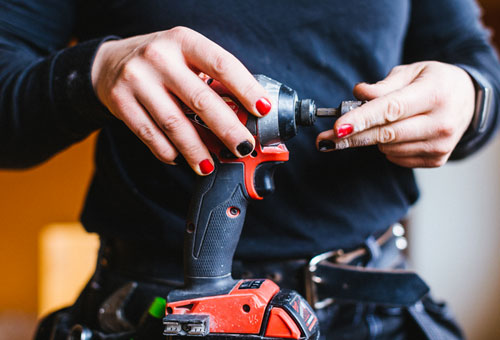How to research home loans like a pro.
Just as you’d swipe and scroll the web for the perfect new pair of ...
9 min read
Looking for your first home and weighing up all your options? Maybe you’ve got your eyes fixed on a fixer-upper? Great! Before you take one more step towards stepping inside, it’s worth considering the realities of renovations. Hey, it’s nothing scary. But just like all things home-buying, there are a few things to think about before you commit to a particular property. Let’s find out what they are.
A fixer-upper might capture your attention for a number of different reasons, but the biggest might be the ‘a’ word: affordability. In the shape of a fixer-upper, you might find a home that will become the perfect place in the future (once you’ve renovated) but for a cheaper outlay now than finding that perfect place that needs no work. So, whether you’re getting started in property wherever you can or choosing a place that has the potential to be a dream home, a fixer-upper could be a cost-effective way to make a short-term start on building long-term dreams. If your budget only allows for an unrenovated version of your ideal place, you can secure it now and work on it over the years, if you’re up for it.
The home you buy to live in will probably be the most valuable asset you’ll ever own. And this asset will play a big role in your financial future. So, while your main focus could be on finding the comfiest, most-stylin’ home that suits you to a tee, it’s financially savvy to not ignore the money side of it too. When it comes to fixer-upper investments, the name of the game is comparing the value of two equivalent properties: one renovated and one unrenovated.
Look at the difference in price. Adding the cost of your potential renovation (you’ll need to have done a fair bit of research into the costs of reno) to the price of the unrenovated place and comparing that to the price of the renovated place will give you a clear picture of whether you’re getting value for money and building yourself a nice little nest egg for your future. But of course, life isn’t an investment transaction, so if you’re happy to pay a little more to make the perfect home, and you can afford it, then who is stopping you?
Along with making sure the money and investment side of things are all in a good place, it’s a good idea to check in with yourself and see if you’ve got the time and the emotional energy to take on such a project.
The fact is, good things take time, and that goes for renos, too. Things happen. Timeframes can blow out for various reasons, so steel yourself for that. Budgets can come under pressure, so it could be smart to keep a little wiggle room in your figures (and in your expectations). It will be a fair bit of work. Even if you’re as prepared as possible, it will be a rollercoaster: there will be ups, there will be downs, so make sure you’re buckled up and ready to hold on tight. It will be worth it in the end.
It’s only human to have an emotional response to finding a dream first-home fixer-upper with oodles of potential. Cool warehouse conversion? Stylish art deco delight? Classic heritage home that just needs a bit of work? Be still, our beating hearts. It’s easy to get swept away in how beautiful and liveable the end product could be and ignore some clear warning signs along the way. So, check yourself. How you check yourself is totally up to you, but maybe create a way to make sure you’ve done the numbers, your heart isn’t overruling your head or you’re overlooking clear red flags like potential budget blowouts or insurmountable council hurdles. You could enlist a friend to ask you some hard questions or make yourself a checklist. Having a safety mechanism will help you know when to cool off and look for something else. Don’t sweat it. The right fixer-upper first home for you is out there.
Important information
Any advice in this article does not take into account your objectives, financial situation or needs, and you should consider whether it is appropriate for you. Before making a decision in relation to our home loan products, you should read the Terms and Conditions booklet and Fees and Limits schedule, available at ing.com.au or by calling 133 464. All applications for credit are subject to ING’s credit approval criteria. Fees and charges apply. ING is a business name of ING Bank (Australia) Limited ABN 24 000 893 292, AFSL and Australian Credit Licence 229823.
In relation to our credit products, you should consider our Terms and Conditions booklet, Fees and Limits Schedule, Credit Guide and Key Facts Sheet available at ing.com.au when deciding whether to acquire, or to continue to hold, a credit product.